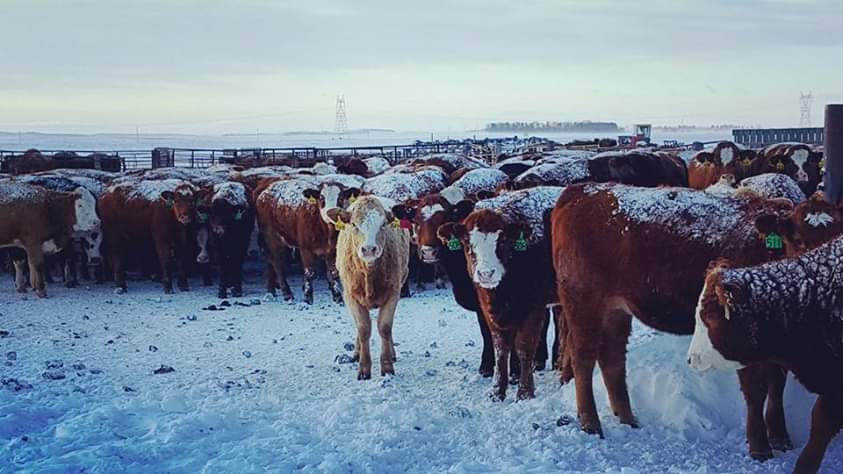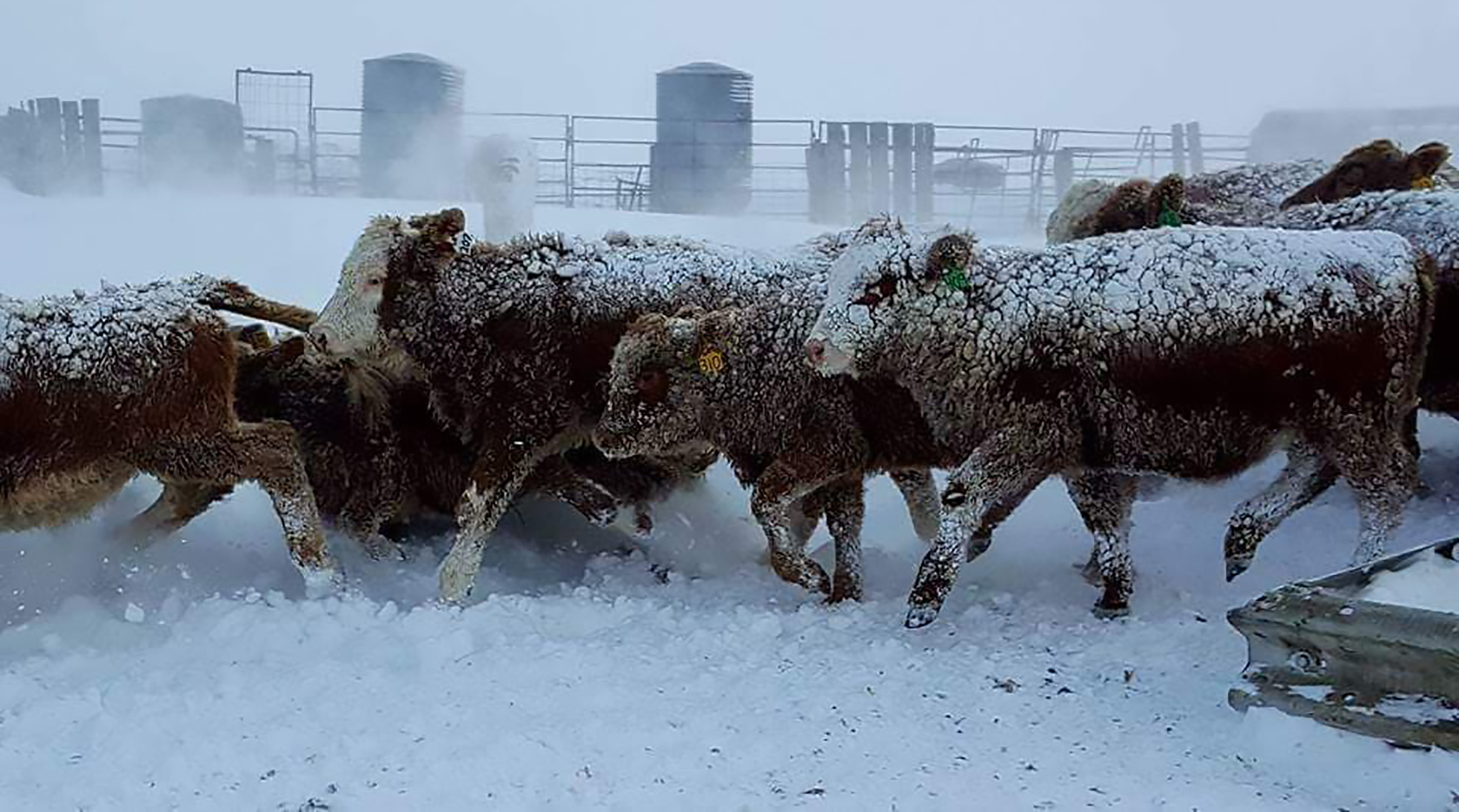by Heather Lang
This winter has been a real whirlwind of changes and challenges. In early October we experienced a snow storm that lead to ranchers losing calves or having to doctor calves that we typically don’t have to worry about much that time of year. Following the snow storm, things started to clear up and we had a mild winter overall with many thinking that maybe we were going to get lucky and bypass our typical North Dakota winter, until about the last month or so.
We had 20 ABOVE zero days, directly followed by 27 BELOW zero (actual temperature, add in the windchill and it was 47 below), and everything in between. We had seven straight days of snow with freezing rain and high winds. School has been cancelled multiple times this year due to the extreme cold. And don’t even get me started on the March 13-14 bomb cyclone.
When the weather fluctuates drastically in a short amount of time it is draining on the farmers and ranchers who work out in the weather daily trying to keep their animals safe, warm, and healthy. Those who raise livestock take pride in how they raise their animals. We keep in close contact with our vet. We know if our livestock are starting to get sick; their ears drop, they aren’t eating as much, their head droops to one side, their belly looks bloated and so on. We also keep a record book on every animal, recording when they were born, their parents, their ear tag numbers, if they have had babies themselves and if so, how many, and each time they have ever been doctored and for what.

I don’t know about you but when my first child was born, I made sure to have the baby book completely filled out, a clipping of the newspaper article that day, along with the scrapbooking all up to date.
When my second came along, I still filled out the baby book (but not in as much detail) and I still did a scrapbook, although it wasn’t always up to date.
And when our third child came, I didn’t even fill out a baby book, however I did manage to start a scrapbook. Seven years later, I only have the first three days of his life scrapbooked.
Now imagine having to keep a record book for every single animal you own AND having to keep every one up to date at all times. It is a lot of work. People probably think that we don’t document everything, but we do. These records are imperative to our farm, the health of our livestock and being able to build up our business effectively.
Keeping detailed records helps us figure out things like how fast each animal is gaining weight which allows us to calculate how much feed each animal should get. It also tells us how to blend their feed to give them all the nutrients they need. Records help us track the number of babies each animal has, if they had twins, if they miscarried, or had stillborn babies. Does she seem to consistently have early labors, or long labors, possibly needing some extra assistance? What if she has big babies but she rejects them? How is their temperament? Do they tend to be fence jumpers no matter how high or how strong of a fence you have before them?
This is our business. We are professionals and no matter the size of the farm or how large your herd numbers are, all these are extremely relevant to us as caretakers, because our job is to provide safe, healthy, affordable food for not only our family, but also yours.
